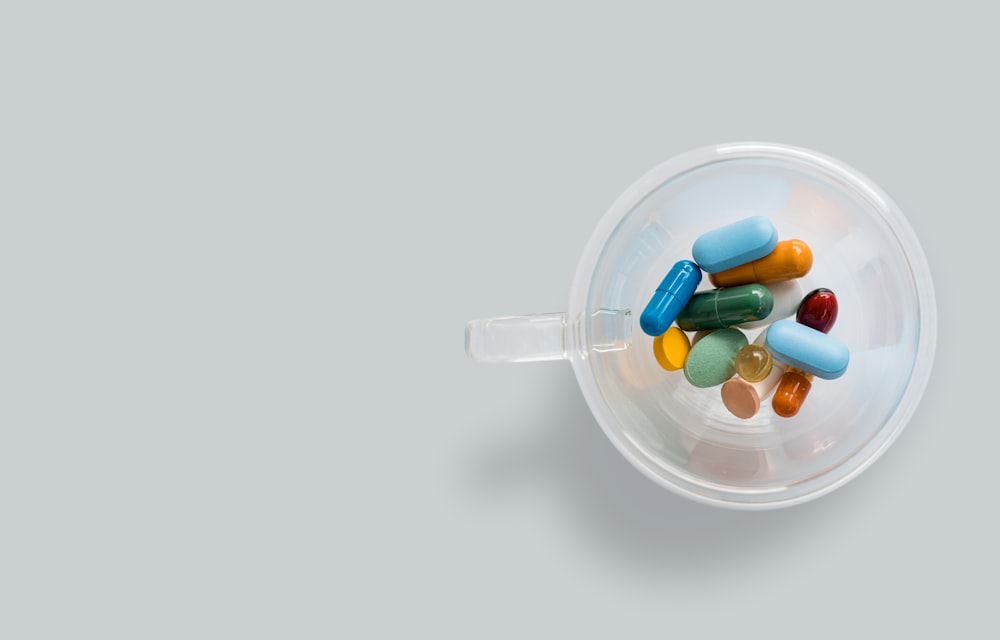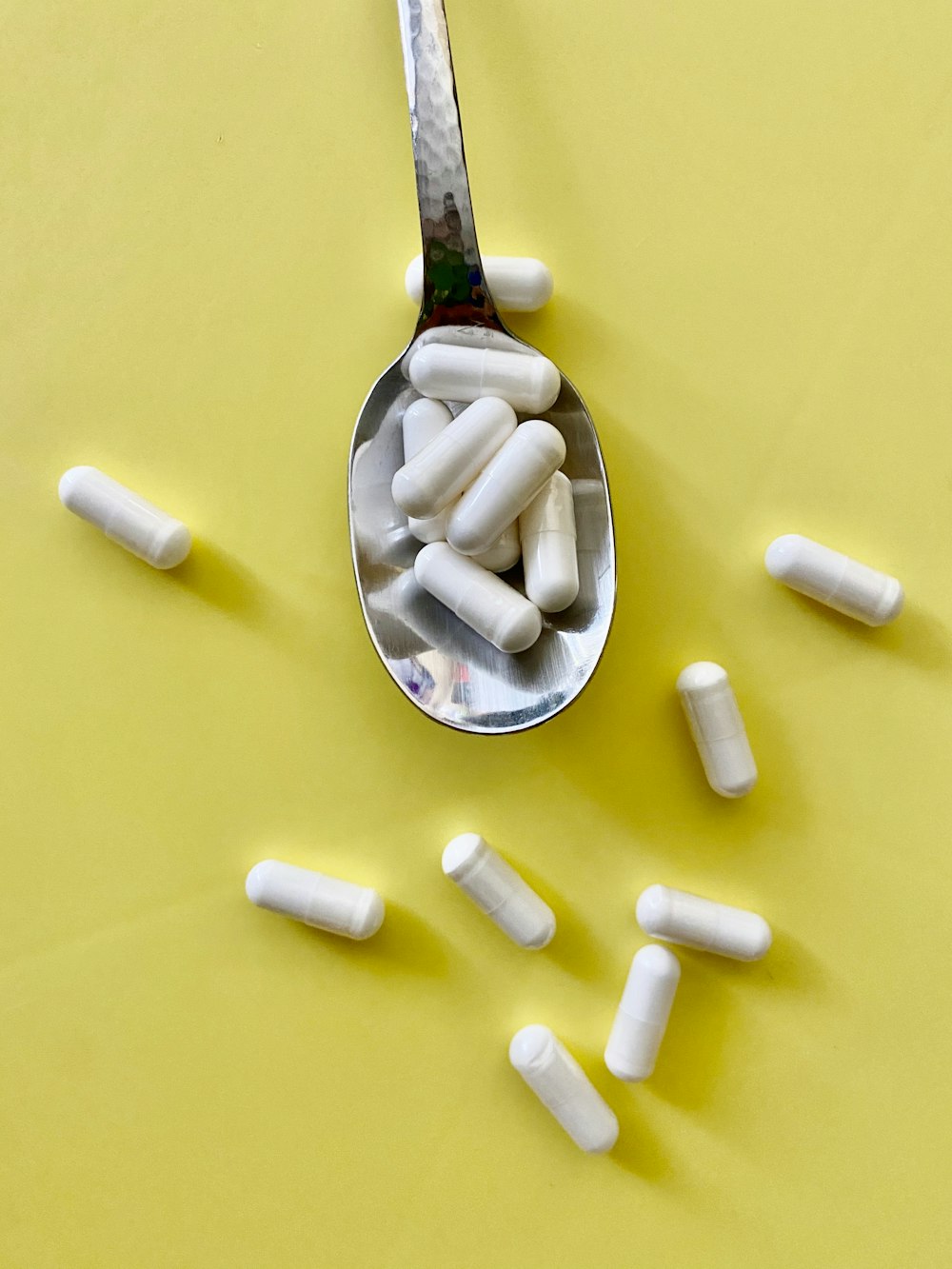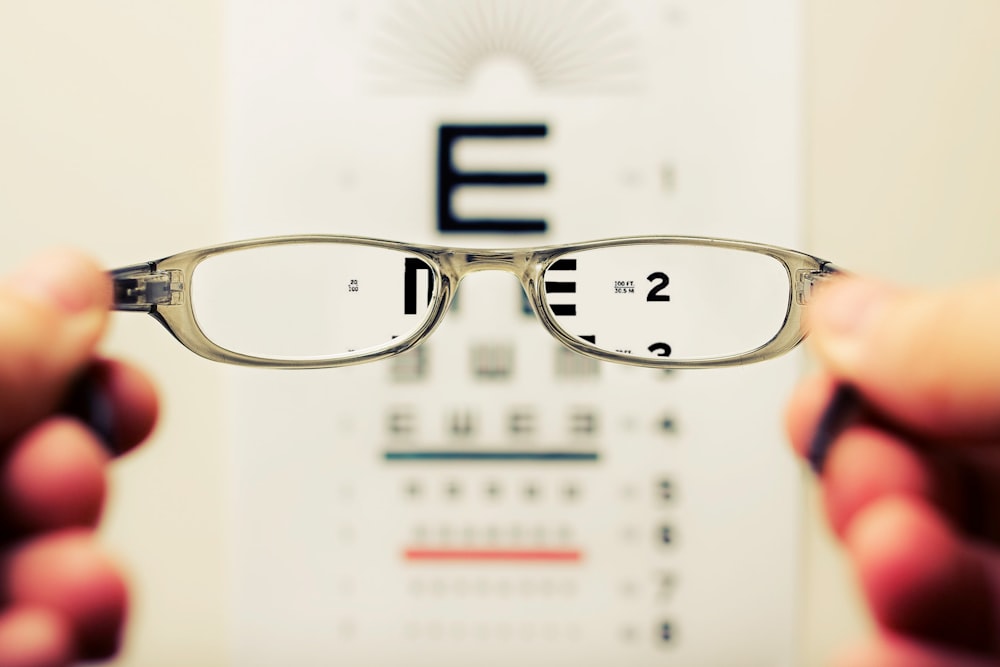Trace Minerals and Multivitamins : Do You Realy Need Them?

Less is sometimes more when it comes to nutrients. But some wouldn’t agree, eh? It is common sense that if you want to have more vitamins and minerals, you need to take more of them in huge amounts. And that is understandably so. Of course, we need as many nutrients as we can for our body to function at its finest! However, not all nutrients are required to be taken in large quantities. Our body only needs a small number of trace minerals -- and that is all that the body needs. You can find these important minerals in food or you can have them by taking mineral supplements.
As we pass through the 40s, the idea of aging can be quite a scary thought. Do you think you can cope up with the demands of just being an adult? I, for one, am even struggling between work life and family life- and it can wear me thin! Sometimes, don’t you wish we can age backward so that we can better face life’s struggles head-on fortified with the shield of youth, health, and vitality? We wish!
Such is the natural law of nature. Growing old is inevitable. But it doesn’t necessarily mean that we lose our health along the way. So, are you with me? It is about time that we take our well-being seriously and find better ways to improve the quality of our lives. Equipped with the right knowledge and vital information about health and nutrients, we can do this!
What are microminerals?
Since we are nearing the prime of our lives, it is therefore important to take vitamins and a healthy amount of minerals regularly. I’m sure we all have heard of this rather iconic health slogan: Vitamins and minerals are essential for the body. However, if you ask me, I don’t even know what these mean! I mean, I know that both of them are important for our health. But to strictly define a vitamin or a mineral per se, I don’t think I will pass this test.
Can I ask you then, what is a vitamin? What is a mineral? And how do they differ from each other? These are the important terms and concepts that we need to familiarize ourselves with. Knowing what differs a vitamin from a mineral will allow us to better understand what trace minerals are or otherwise known as microminerals.
Vitamins versus Minerals
Everything in our life is all about balance. Even our health requires such balance. Both are two polar options, but both are required for the overall wellness of our bodies. We all need both multivitamins and minerals.
Simply put, vitamins are substances that are organic which our body needs to function well. They are derived merely from the activities of plants and animals. On the other hand, minerals are inorganic and are responsible for giving our body the proper nutrition. Minerals are formed, not derived, from certain natural processes. You can check out Harvard Health's article Vitamins and Minerals to know more. Do you see how different they are but at the same time, both are equally important for our health?
Since vitamins refer to organic materials, it means that they can be broken down once it reacts with light, air, heat, or other elements. Furthermore, it is easy to get them for our bodies because they are commonly found in animals and plants. Rest assured that when you eat nothing but healthy foods and a balanced diet, you already take enough vitamins for your body to work properly.
However, minerals in food can be a tad complicated. Unlike vitamins which can be easily dissolved with water or absorbed through fatty foods (thanks to their organic nature), minerals tend to act more independently. Since they are inorganic compounds, their chemical structures are maintained regardless of their exposure to heat, air, light, or other elements. So, even if minerals interact with water, it does not dissolve with the water just like most vitamins do. Instead, minerals stay intact and will stay as-is even upon consumption.
Minerals help sustain our body with the right nutrition. Just like vitamins, they can also be found in the food that we eat. These essential minerals can be categorized into 2 groups. The first one is the macrominerals or the major minerals and the second one is the microminerals.
Macrominerals versus microminerals
Minerals, in general, are vital for the overall physiological function of the body. This includes proper circulatory system, adequate hormone production, and the like. The macrominerals are those that are needed in big quantities. According to health doctors, your intake of major minerals should not go less than 100 milligrams for you to be able to receive a sufficient amount of macrominerals required for the body. Examples of essential macrominerals are the following:
- Calcium
- Sulfur
- Phosphorus
- Chloride
- Magnesium
- Potassium
- Sodium
But on the other hand, not all minerals should be taken in large amounts. Unlike macrominerals, microminerals are required in their small portions only. A study conducted by P. Antony Jesu Prabhu, et.al. entitled “Evaluating Dietary Supply Of Microminerals” confirmed that our body only needs 15 milligrams of microminerals or less.
Why do we need small dosages of micronutrients?
Even I would wonder why. I mean, I am kind of a minimalist myself but it can be mind-boggling as to why something that can be so vital for our health should be taken so sparingly.
But “too much love will kill you”, right? Perhaps the concept of love applies to micronutrients as well. As too much love can be cosseting, so does too many micronutrients that can be toxic. But not to worry. We cannot always accidentally take too many microminerals. As long as we take a healthy and balanced diet with fruits and vegetables, we could have very well satisfied the daily recommended intake of essential minerals for our body. But let’s make sure not to go overboard, okay? And these are strictly doctor’s orders.
So, since we only need small doses of some minerals in food, otherwise they can turn toxic for the human body, would it be okay to not take them at all? Then, that would be equally perilous! A mineral deficiency can cause serious declination of the immune system, general fatigue, and lower bone density, among others. What’s even scarier here is that it gets significantly complicated over time. We don’t even know what hit us until it’s already too late. Alarming, eh?
To choose between mineral overdose and mineral deficiency is like picking your poison. So let’s not, okay? We don’t have to choose from these options. We can always go for the healthier and the best alternative, and that is to take micronutrients in small amounts only. Taking trace mineral supplements is highly preferred also.
What vitamins do people need?
All in all, these are the 13 most important vitamins based on Medline Plus' information on Vitamins that we need to take so our bodies will thank us for. Absent any of these vitamins in our body would lead to certain diseases and infections.
Vitamin A
- Vitamin A is responsible for the formation of our teeth, skin, skeletal tissues, and soft tissues. It also keeps them healthy. On the other hand, Vitamin A also helps in the production of the retina pigment of our eyes. So, it helps us maintain good eyesight.
- If you experience poor vision in a low-lighted environment, you might be Vitamin A deficient. Vitamin A deficiency also leads to a high risk of getting infected by diarrhea or measles.
Vitamin C
- Vitamin C is one of the most popular vitamins because of its antioxidant nature. This type of nutrient helps in blocking free radicals from causing damage to our health. Aside from it being a prominent treatment for the common colds, it is also known to help repair and grow the tissues in our body.
- Vitamin C deficiency leads to a lot of physical conditions. This includes anemia, gingivitis, lower ability to fight infections, and a slower healing rate, among others. The most severe Vitamin C deficiency is scurvy which is quite common among malnourished children.
Vitamin D
- Vitamin D keeps the bones strong and helps the body in absorbing calcium. It maintains the level of phosphorus in our blood. How? Vitamin D taps powers from its allies- phosphorus and calcium. Now, that’s what I call teamwork! And, it has also been known to prevent certain kinds of cancers.
.
- Vitamin D deficiency commonly leads to high blood pressure, diabetes, multiple sclerosis, and even other forms of cancer. The most severe condition for Vitamin D deficiency is rickets which is a disorder among children characterized by having soft and weak bones.
Vitamin E
- Like Vitamin C, this vitamin also has antioxidant properties. It is responsible for protecting the cells from damage caused by free radicals. It also helps boost the body’s immune system. It prevents blood clotting within our blood vessels. The cells in our body us Vitamin E so they may be able to respectively perform their functions.
- While Vitamin E deficiency is not at all that common, it can cause various serious diseases like Crohn’s Disease, ataxia, cystic fibrosis, and the like. Also, it can cause damage to our body’s muscles and nerves which may lead to a lack of control in body movement, numbness in the body extremities, and weakness.
Vitamin K
- Vitamin K is responsible for preventing blood clotting, ensuring the proper metabolism of bones, and aids in the regulation of the levels of blood calcium in the body.
- Just like Vitamin E, the deficiency of vitamin K is rare. However, a person who is Vitamin K deficient experiences excessive bleeding and hemorrhage.
Vitamin B complex: B-1 for thiamine
- The role of thiamine is to allow the body to acquire energy from carbohydrates. It is responsible for the proper functioning of our nerve and muscle. Glucose metabolism, which serves as the fuel for our body organs to function well, wouldn’t be possible without Vitamin B1.
- Thiamine deficiency leads to a condition called beriberi which can be characterized by paralysis and speech impediment.
Vitamin B complex: B-2 for riboflavin
- Riboflavin acts like a machine in our body that breaks down carbohydrates and turns it into adenosine triphosphate (ATP). ATP acts as a catalyst to energize the cellular operations of our body.
- Since Vitamine B-2 is responsible for keeping other cellular processes in our body, a deficiency of which will lead to a deficiency of other vitamins as well. Those who are fond of drinking brewski regularly are at risk for this deficiency. A severe case of riboflavin deficiency is ariboflavinosis which is commonly characterized by mouth sores.
Vitamin B complex: B-3 for niacin
- Niacin is responsible for turning the food that we eat into energy. It also helps in keeping our hair and skin healthy.
- Vitamin B-3 deficiency may lead to problems relating to the circulatory system, memory loss, skin rashes, and even hallucinations. In severe cases, it can also lead to pellagra, which is commonly characterized by acute inflammation of the skin.
Vitamin B complex: B-5 for pantothenic acid
- Just like other Vitamin B complexes, pantothenic acid also helps in converting food into energy particularly in the form of glucose.
- This is a not so popular vitamin because reported deficiencies of Vitamin B-5 is quite rare. The most severe condition is insulin sensitivity.
Vitamin B complex: B-6 for pyridoxine
- The main contribution of Vitamin B-6 is primarily on our body’s central nervous system. It helps in the production of serotonin and norepinephrine which are associated with treating depression.
- Vitamin B-6 deficiency leads to depression, anemia, and a weakened immune system. Besides, it can also lead to a severe condition similar to pellagra.
Vitamin B complex: B-7 for biotin
- Biotin is responsible for metabolizing fats and protein. A study shows that it can also help in strengthening skin, nails, and hair (familiar with the commercial ads: Pantene with “biotin”?).
- Conditions showing a deficiency of biotin include a weakened immune system, lethargy, ataxia, and an increased vulnerability to bacterial infection.
Vitamin B complex: B-9 for folic acid
- Folic acid a.k.a. folate helps in the production of red blood cells and white blood cells in the bone marrow. Furthermore, it also helps in the conversion of carbohydrates into energy. It even helps in the healthy development of the baby in the mother’s womb.
- A Vitamin B-9 deficiency can be serious for pregnant women as it can lead to congenital deformities for the baby. It can also lead to depression or other cardiovascular diseases.
Vitamin B complex: B-12 for cobalamin
- Cobalamin is an important Vitamin B. It is responsible for ensuring that our brain and nerve tissues are in its tip-top condition. It also helps the production of red blood cells for the body.
- While Vitamin B-12 deficiencies are not that common, it may also lead to serious neurological problems. It may also cause memory loss, depression, and confusion.
What are the 9 microminerals that are essential for human life?
Dieticians and doctors could never stress enough the importance of taking them in minute dosages to maintain good health and wellness. This can be in the form of trace mineral supplements. Among the many recorded micronutrients, 9 trace minerals that are already recognized in the field of medicine as beneficial to our health. Mr. Osamu Wada, professor emeritus of the University of Tokyo explained in his study on trace elements their excess states and deficiencies. These are the following:
Zinc
- Zinc is responsible for the metabolism of bone, carbohydrate, lipid, and protein in or body.
- Symptoms of zinc deficiency include, among others, a slow rate of wound healing, depression, alopecia, and stomatitis.
- Symptoms of zinc overdose include, among others, lung edema, dwarfism, hypotension, anemia, and taste disorder.
Chromium
- Chromium is responsible for the metabolism of protein, connective tissues, carbohydrates, and cholesterol.
- Symptoms of chromium deficiency include, among others, peripheral neuropathy and abnormal glucose tolerance.
- Symptoms of chromium overdose include, among others, peptic ulcer, growth retardation, and liver dysfunction.
Selenium
- Selenium serves as a catalysis for antioxidation. It converts T4 to T3 conversion while reducing any form of activity in the body that would indicate carcinogenic actions.
- Symptoms of selenium deficiency include, among others, myalgia, whitening of the nail beds, and cardiomyopathy.
- Symptoms of selenium overdose include, among others, alopecia and detachment of nails.
Copper
- Copper is responsible for the metabolism of connective tissues and bone.
- Symptoms of copper deficiency include, among others, neutropenia, anemia, and leukopenia.
- Symptoms of copper overdose include, among others, heartburn, hemoglobinuria, hypotension, and even coma.
Molybdenum
- Molybdenum is responsible for the metabolism of uric acid, sulfuric acid, and amino acid.
- Symptoms of molybdenum deficiency include, among others, night blindness, irritability, disorientation, and even coma.
- Symptoms of molybdenum overdose include gout and hyperuricemia.
Fluorine
- Fluorine is responsible for the promotion of bone formation.
- Symptoms of fluorine deficiency include bone weakness.
- Symptoms of fluorine overdose include skeletal fluorosis and kidney injury.
Manganese
- Manganese is responsible for the metabolism of bone, lipids, and carbohydrates. It also promotes immunity and reproduction.
- Symptoms of manganese deficiency include, among others, a decreased rate of coagulation and growth retardation.
- Symptoms of manganese overdose include, among others, Parkinson’s, lack of vigor, edema, and myalgia.
Iodine
- Iodine is responsible for the metabolism of tissues.
- Symptoms of iodine deficiency include goiter and hypothyroidism.
- Symptoms of iodine overdose include the same symptoms as that emanating from iodine deficiency.
Iron
- Iron is responsible for resistance to common infections.
- Symptoms of iron deficiency include, among others, pale skin, brittle nails, and fatigue.
- Symptoms of iron overdose include, among others, diarrhea, metabolic acidosis, and renal failure.
Why do our bodies need vitamins and microminerals?
Why not?
I cannot even begin to tell you the gamut of health benefits they provide! Let’s think of our body as an entire empire magnate. It is autocratic and self-sufficient -- kind of like how our body functions. It is how it is because each of the departments works efficiently and independently for the common good of the magnate: too much administration makes the empire authoritarian; too much human resource might lead to chaos, or too much recreation makes it lax. Remember what I told you about balance?
So the vitamins and certain minerals act as the different departments that run the empire- that is our human body. As mentioned, it can be dangerous for our body to take only one kind of nutrient and ignore the rest. That is how they work: they are part and parcel of the whole health package! They are not mutually exclusive as the body cannot work at their optimum if either one is not present. We’ve already gotten acquainted with the different vitamins and some of the minerals. Now, let’s try to dissect them and see how are they being categorized into, shall we?
The water-soluble vitamins
Given the organic properties of vitamins, they are then categorized into 2: the water-soluble vitamins and the fat-soluble vitamins. Water-soluble vitamins are contained in the watery parts of the food that we eat. They are quickly absorbed in our body through the bloodstream.
Based on the book “Diet and Health: Implications for Reducing Chronic Disease Risk”, water-soluble vitamins perform many functions for the body. They include the conversion of the food that we eat to energy. They also help in the metabolism of amino acids and the production of collagen. While thee vitamins should be replenished after several days, they can rest in our body for longer periods.
Water-soluble vitamins include Vitamin C and the Vitamin B family.
The fat-soluble vitamins
Fat-soluble vitamins enter in our body quite differently from water-soluble vitamins. They use proteins so that they may be able to travel to our bloodstream. Every time we eat oily foods and fatty foods, the vitamins they contain use protein so they may be granted free passage in our body so it can be broken down to absorb the nutrients.
Like water-soluble vitamins, they too perform many functions for the body. They include bone formation, good eyesight, proper absorption of other vitamins, and protection against harmful radicals.
Fat-soluble vitamins include Vitamin A, D, E, and K.
Minerals
Minerals are as important as vitamins. Like I previously mentioned, there are 2 kinds of minerals: the macrominerals and the trace minerals or microminerals.
Our body contains macrominerals or major minerals in large amounts (which explains their name). They assist in the maintenance of the healthy balance of water in our bodies. They also help in the stabilization of the protein structures of our bodies. On the other hand, microminerals provide a plethora of benefits and functions for our health- each unique and essential from the other.
These microminerals include chromium, copper, fluoride, iodine, iron, manganese, molybdenum, selenium, and zinc while macrominerals include calcium, chloride, magnesium, phosphorus, potassium, sodium, and sulfur.
Applied Science Nutrition’s Multi-Vitamins
Such vitamins together with the minerals in food are both important for our health. But taking higher doses of a certain nutrient may lead to a deficit of the other. Thus, it is important to take all of them in their recommended dosage.
But can we do that- like produce all these vitamins and minerals ready for our taking? Well, I wouldn’t want to waste my entire day finding healthy foods that contain these nutrients and eat them one by one?! Indeed, it is not easy to get hold of the spectrum of important vitamins and necessary minerals by way of diet. That is why we need to have reliable and high-quality multivitamins and mineral supplements that will fill the gaps that our way of eating alone cannot fully sustain.

Since we are nearing the prime of our lives, it is therefore important to take a good multivitamin - and not just any other multivitamin, at that! With Applied Science Nutrition's Multivitamins life gets better when you age! It is packed with all the nutrients that are needed for overall health and wellness.
Life can be daring even while you’re aging!
Aaah! It is the most common predicament of life: we all want to live long, but no one wants to be old. Can we just change this entirely fallacious concept? Being old doesn’t necessarily mean you have to take your regular visits to each of your ophthalmologists, orthopedist, and cardiologist! Let me tell you, life doesn’t stop when you age.
In this modern world of medical innovation, having a balanced diet is not the only way to cultivate good health. The elusive elixir of life is not so elusive anymore. With a balanced diet, proper exercise, and the right multivitamins and mineral supplements, we can acquire all the needed vitamins and minerals to our advantage. Let’s stop the misconception that we get sicker when we age, we don’t - as long as we keep a regular healthy intake of vitamins, macrominerals, and the powerful microminerals.
Life is beautiful when you’re healthy. Take your multivitamins and minerals.















